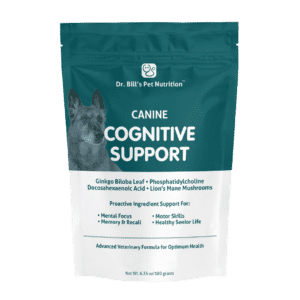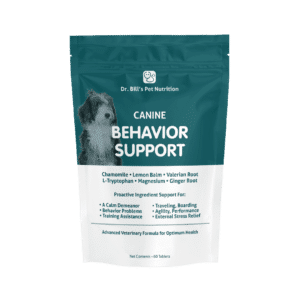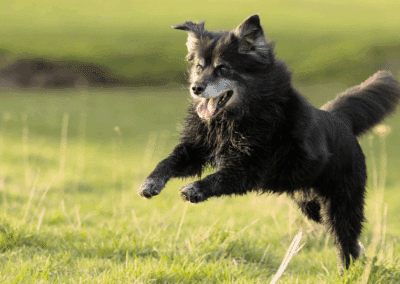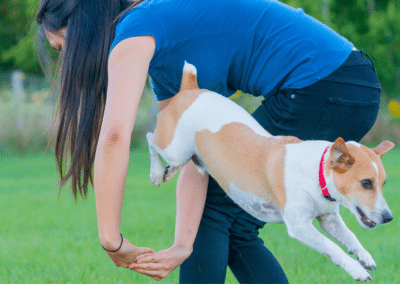Imagine, you walk through your front door after a long day at work to see your anxious dog panting beside the scattered pieces of your living room couch. Severe separation anxiety, reported to be found in approximately 13% of canines, can lead to destructive and expensive outcomes. Separation anxiety is a condition where dogs experience extreme stress when they’re away from their primary guardian.
Over thousands of years, dogs have been bred to be social creatures that assist humans with a wide range of tasks. Due to canines wanting to be around us 24/7, separation anxiety stems from an extreme fear of human abandonment. Let’s dig into common signs which indicate canine separation anxiety, and what steps you can take to ease your dog’s concerns.
Indicators of Separation Anxiety
Pet owners can commonly mistake separation anxiety for disobedience, however, these provided indicators reveal that your dog is actually distressed over your absence:
- Accidents in the house, such as urinating or defecating in undesirable spots.
- Extreme attempts to escape the home, which can potentially result in serious injuries to your dog.
- Generally anxious behaviors such as whining, shaking, or pacing.
- Prolonged howling or continuous barking.
- Chewing, digging, or other destructive acts.
- Overabundance of saliva, panting, or drooling excessively.
What Causes Separation Anxiety in Dogs?
There is no conclusive evidence to explain exactly why some dogs develop separation anxiety, although these are the most common explanations of this destructive condition:
- Change of Guardian, Owner, or Home: Dogs who are surrendered to a shelter, or commonly change homes, are more likely to develop separation anxiety.
- Change in Schedule: Drastic changes in a dog’s daily schedule can trigger symptoms of separation anxiety. This can include an owner being out of the house longer than normal, your dog being left in an unfamiliar home, or even adjustments to their food schedule.
- Change in Household Members: The sudden absence of a family member, whether they passed away or moved away, can trigger separation anxiety in dogs.
Methods to Treat Separation Anxiety
When treating your dog’s separation anxiety, it’s ideal to help your dog feel less reliant on you, as well as improve your dog’s ability to relax when you are out of the house. Most of the time, helping your dog overcome separation anxiety is a slow and timely process. However, here are the top professional tips to safely and quickly improve your dog’s separation anxiety:
- Behavior Support Treats: Dr. Bill’s Canine Behavior Support tablets are made of a unique and effective combination of 11 natural ingredients that help reduce the negative effects of stress in your dog. These may include separation anxiety, aggression, fear, hyperactivity, or motion sickness. Dr. Bill’s Canine Behavior Support tablets are especially useful when boarding, traveling, or training your dog.
- Downplay Hellos & Goodbyes: Adjust your “leaving the house” signals so that your dog doesn’t dramatize the process. Say goodbye to your canine long before you leave so that your dog is calm by the time they’re alone.
- Exercise Your Canine: Taking your dog out for a 30-minute walk before your departure can dramatically relax your dog’s behavior. Following your walk, and before you leave the house, be sure to divert your dog’s attention to either food or sleep.
- Create Personal Space for Your Dog: Even when you’re in the house, train your dog to be comfortable with their alone time by leaving toys, music, and other comfort items around their space.
If these above tactics aren’t improving your dog’s separation anxiety, it may be best to consult with a trainer or an animal behavioral specialist.
Dr. Bill’s Canine Supplements
While unwanted behaviors associated to separation anxiety often require canine retraining, this process can be made much easier with Dr. Bill’s Canine Behavior Support and Dr. Bill’s Cognitive Support. Canine Behavior Support is a tablet that can help your dog manage the root of their anxiety by allowing them to naturally calm down. It’s also been proven to be safe and effective for young, adult, and elderly dogs. Additionally, Dr. Bill’s supplements have been recommended by over 3000 veterinarians for more than 40 years.
Looking for a tablet formulated from biologically appropriate and natural ingredients to help your dog relax? Dr. Bill’s Canine Behavior Support and Dr. Bill’s Cognitive Support is the ideal method to help ease and improve separation anxiety in canines.
-
Canine Cognitive Support$44.99 — or subscribe and save 10%
-
Canine Behavior Support$24.99 — or subscribe and save 10%










0 Comments